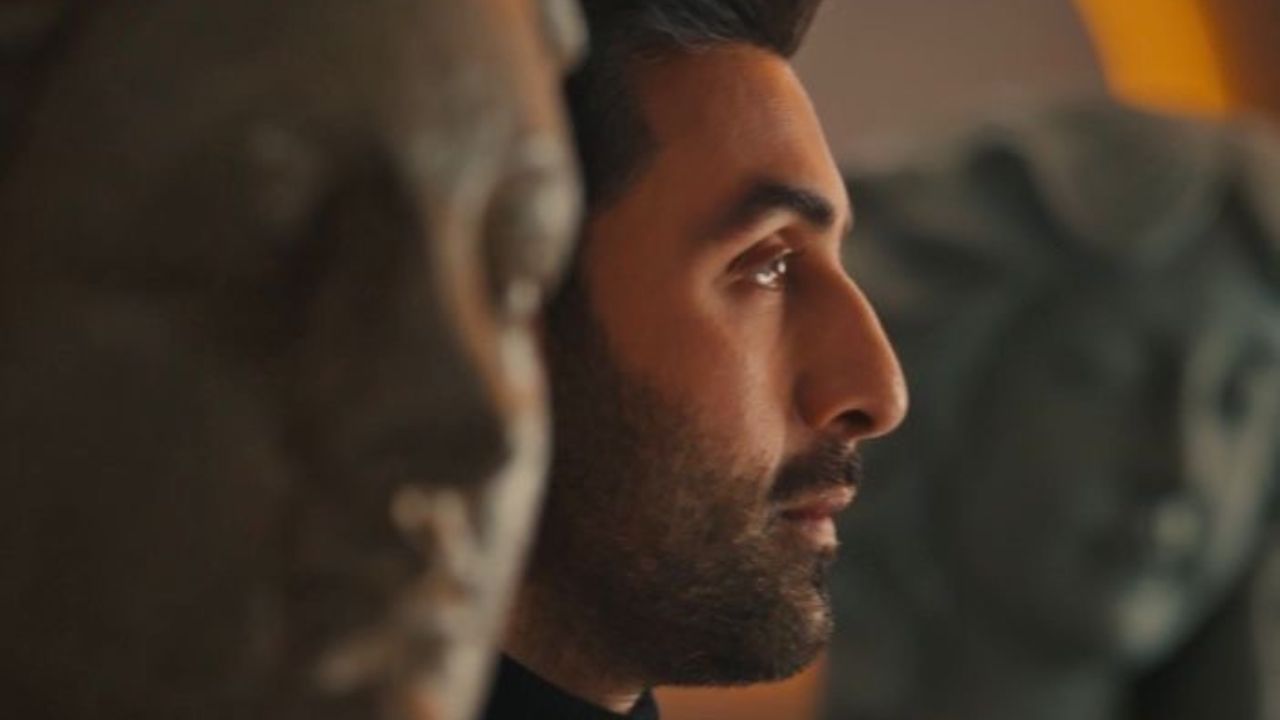When filmmaker Keith Gomes dropped his short film Dear Men on YouTube on 30 July, which is also World Anti-Trafficking Day, it wasn’t intended as entertainment. The film, starring actress Sayani Gupta, dives into the murky underbelly of child trafficking in India. Inspired by the real-life rescue operations of social activist Dipesh Tank, Dear Men is a cinematic mirror to a grim reality that many prefer to avert their eyes from.
Tank’s life reads like a screenplay itself. The former advertising professional who is now the communications head for a renewable energy major, has tried to find time between his work hours to rescue children and women caught in the snare of sex trafficking.
From posing as a filmmaker in Bihar’s red-light districts to going undercover in Mumbai’s crowded trains, he has risked his life to rescue trafficked minors. While Tank’s work earned him a Governor’s Medal, he claims to have barely scratched the surface. After all, the broader issue of trafficking remains unflinchingly grim.
As of early 2024, 44% of India’s human trafficking victims were minors, as per National Crime Records Bureau. With over 1.2 million individuals reportedly trapped in forced prostitution and 53% of victims supposedly exploited in sexual slavery, the film’s release couldn’t be more timely.
Truth without the trauma
For Gomes, who previously directed the Oscar-qualified Shameless (2018) followed by Doobie, which Amitabh Bachchan promoted, Dear Men continues his commitment to socially conscious cinema. But unlike sensational thrillers, this one treads a delicate line.
“I had to find a point of view,” he says. “The issue of trafficking has so many layers. Most stories show it from the victim’s side, but I stayed with the rescuer’s perspective, by keeping the depiction of trauma to a minimum so that people actually watch it.”
That restraint is strategic. Viewers often disengage from content that feels too harrowing, yet Gomes wanted to convey the peril and selflessness of rescue work. His decision to cast a woman in the main protagonist’s role inspired by Tank was equally deliberate.
“The idea came from Dipesh; the thought of ardh-nari (half feminine),” Gomes explains. “We usually see men as saviours. By casting Sayani, we changed the gaze and emotional stakes. It was a statement that women can be rescuers too.”

Behind the camera, Dear Men drew together a global team. Hollywood composer Alex Somers (of Captain Fantastic and Causeway) scored the film, while Oscar-winner Resul Pookutty handled sound. Stefan Richter, known for Uri and Kick, choreographed the action sequences. Produced by Mayukh Ray, Rahul Vishwakarma, Zaman Habib, and Sandeep Kamal, the film is visually engaging yet emotionally raw, and this contrast underscores its urgency.
The uncomfortable truth about corporate silence
Despite the global calibre of talent, Gomes released Dear Men for free on YouTube. Not as a creative rebellion, but as an act of accessibility. “These are films made on issues that trouble me,” he says. “They’re not for profit. Putting them online ensures anyone, anywhere, can watch.”
But accessibility doesn’t pay for production. Gomes admits funding the film was a patchwork of goodwill—friends, collaborators, and small studios stepping in. Brand support? Almost none. And that, both he and Tank argue, exposes a deep reluctance among corporates to be seen near such “dark” themes.
Tank, who also comes from an advertising background, doesn’t mince words. “Very few brands want to invest in anti-human trafficking work,” he says. “It’s complex, maligned, and uncomfortable. Many brands proudly support women and girl-child initiatives, but trafficking somehow doesn’t make the list. Even creating awareness would mean a lot, but the subject is too unsettling.”
The discomfort is real and financial. For corporates, aligning with anti-trafficking efforts carries reputational risks. Public campaigns can backfire, inviting scrutiny over whether a company’s own practices are squeaky clean. A token contribution risks being dismissed as ‘cause-washing’.
As Gomes points out, “Sex trafficking is a dark subject. A company may fear that publicising its association could link the brand to the graphic aspects of the crime. Even a small public partnership can lead to backlash that they aren’t doing enough.”
The unfortunate result is that most brand involvement remains private, whispered rather than amplified. This is a paradox in an age when purpose-driven marketing is fashionable.
From spectacle to substance
Cinema has long flirted with the theme of trafficking, but often through the lens of heroism and vengeance. Hollywood’s Taken franchise and Bollywood blockbusters like Singham or Pathaan turn trafficking into a stylised spectacle. It’s cathartic to watch villains get their comeuppance, but it also risks oversimplifying an intricate socio-economic web.
Gomes is pragmatic. “Commercial films are meant for entertainment. There’s no forced moral responsibility,” he says. “If I made Dear Men as a documentary, it might win awards but few would watch. Making it an action thriller helps it reach more people. Even if mainstream films touch the issue on a surface level, it still brings it into public conversation, and that’s positive.”
That said, his film has a clear activist intent. It was made to wake people up about the Anti-Trafficking Bill that has lapsed in Parliament. Gomes explains, “It’s essential for protecting our children, but most Indians don’t even know about it.”
Tank agrees and hopes that Dear Men brings attention to the anti-trafficking issue so that society at large can address the reality of young girls being trafficked for sex slavery. “Advertising has the power to change behaviour—look at the ‘Do Boond Zindagi Ki’ campaign against polio. It mobilised an entire nation. We hope for a similar awakening here,” he states.

But change is slow when compassion competes with convenience. Anti-trafficking NGOs, Tank notes, struggle to attract sustainable funding because their work defies quarterly metrics. “This short-term impact mindset is one of the biggest barriers to lasting change,” he says. “Donors want measurable outputs—how many people were rescued, how many sessions conducted. But real impact is in survivors rebuilding lives, communities becoming resilient, vulnerabilities being reduced.”
Tank calls for a shift from rescue-based philanthropy to resilience-based investment. That means long-term funding for education, livelihoods, and mental health. These are areas that don’t yield instant visibility but create permanent resistance against trafficking. “If we truly want to end it,” he says, “we must fund patience, persistence, and people.”
The confidentiality of survivor stories adds another layer of complexity. Without faces or testimonials, campaigns lose emotional currency. While protect survivors’ identities is crucial, the activist still believes that creativity can still drive awareness by finding ways to talk about trafficking without exploiting trauma.
When cinema becomes conscience
In an era when ‘purpose’ is often packaged for campaigns, Dear Men poses an uncomfortable question: can creativity and commerce converge to combat a crisis most prefer not to see?
For advertisers and brand marketers, it’s a provocation. Purpose-led storytelling has fuelled campaigns on gender equality, climate change, and LGBTQ+ rights.
Yet trafficking—a $150 billion global criminal industry—rarely finds a place in brand conversations. The absence isn’t just moral; it’s strategic. Brands that champion equality but stay silent on trafficking risk looking selective in their empathy.
If cinema can nudge that conversation forward, Gomes’ experiment may prove significant. He isn’t asking for applause, just awareness. “My films are reminders to be kind, aware, and helpful,” he says simply.
On this Children’s Day, Dear Men challenges both viewers and corporations to decide whether empathy can outgrow discomfort. Because while rescue missions may begin in anonymity, the fight against trafficking cannot stay hidden forever.




